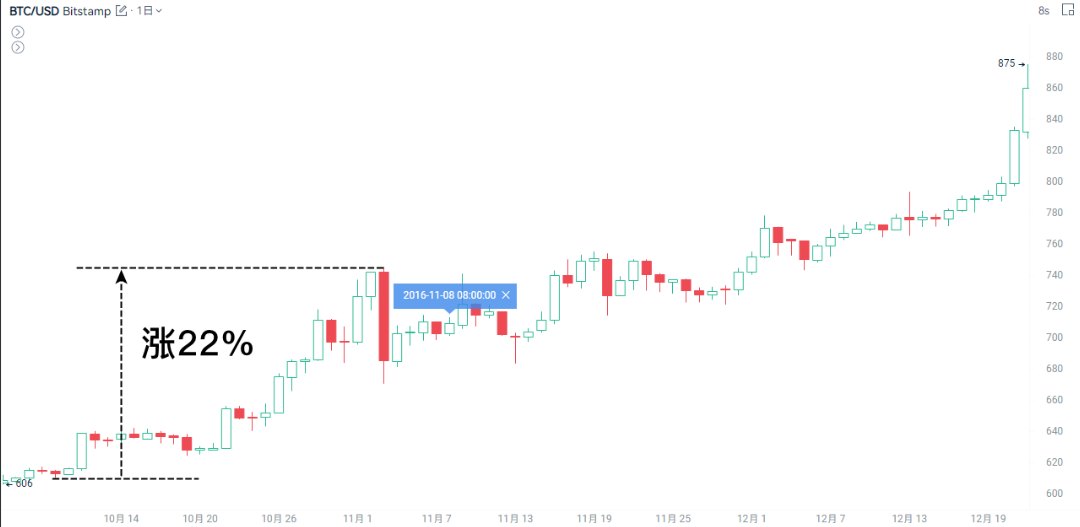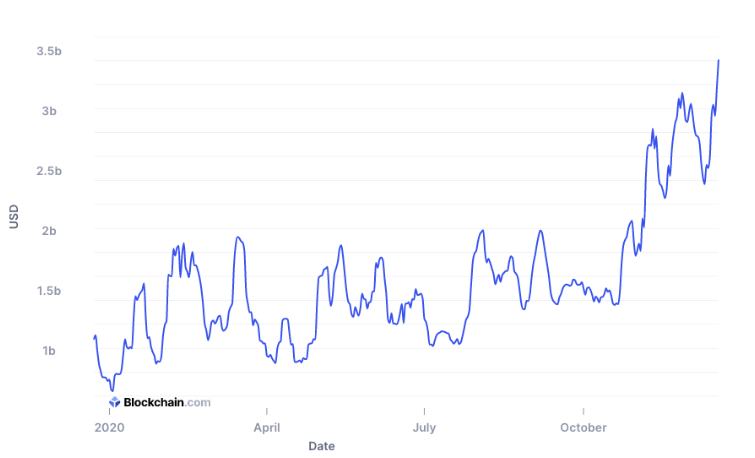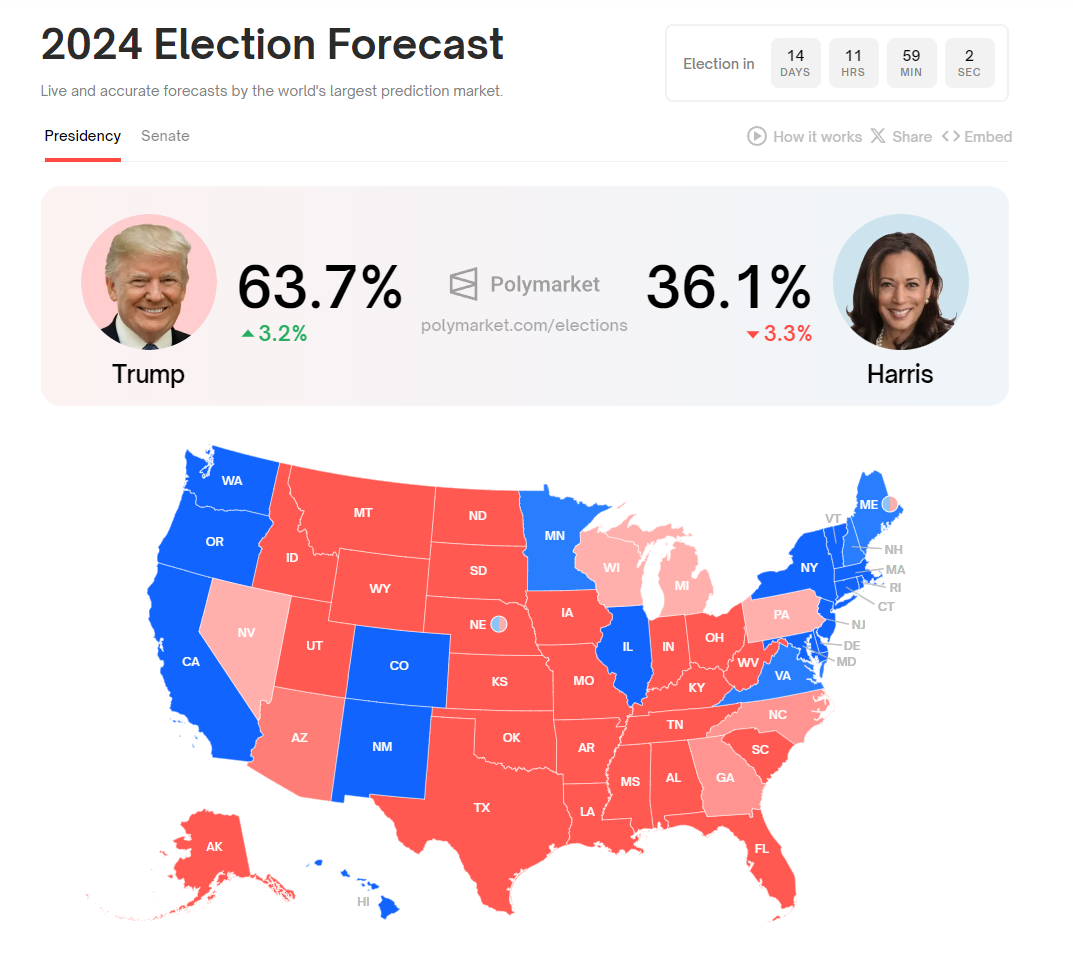Bitcoin is not just an economic phenomenon; it also demonstrates its unique influence on the political stage. During the recent U.S. election, the political attributes of Bitcoin became increasingly prominent. How does this decentralized currency play a role on the chessboard of power?
The Entanglement of Bitcoin with U.S. Elections
Bitcoin has gradually permeated political activities from the realm of financial investment. Its decentralized nature makes it a tool for circumventing traditional financial regulations in many political activities.
By tracing Bitcoin's performance in recent U.S. elections, we can gain insights into its application in political fundraising and its political color.
During the 2016 election, Bitcoin initially reached a local low in the third quarter of that year before the election, but its price soared after the election.

Image Source: AICoin
During the 2020 election, Bitcoin's price reached an all-time high in response to political events related to the election. In 2020, Bitcoin's market dominance ranged from 56% to 69%. From January to September of that year, Bitcoin's price was lower than that of other altcoins, but in the last quarter, coinciding with the U.S. election period, Bitcoin's surge successfully compensated for most of the losses, and trading volume also hit a record high.

Image Source: Internet
Bitcoin donations have also become a new avenue for political fundraising, with many politicians beginning to accept Bitcoin as part of their campaign contributions.
The Impact of Bitcoin on Voter Behavior
The cryptocurrency community often exhibits higher political engagement, with a greater focus on candidates' policy attitudes toward cryptocurrencies. Clearly, voters who own Bitcoin are more inclined to support candidates who have an open stance on cryptocurrencies.
Former U.S. President Trump’s support for cryptocurrencies has garnered widespread attention. Although his attitude toward cryptocurrencies was relatively conservative during his term, with the rise of Bitcoin's popularity and social acceptance, Trump recently publicly expressed his support for cryptocurrencies, attracting a large number of cryptocurrency holders. According to Polymarket data, the probability of Trump winning this U.S. election has risen to 63.7%, likely with support from players in the crypto market.

Image Source: Polymarket
This phenomenon is not an isolated case; globally, many politicians are re-evaluating their cryptocurrency policies, attempting to garner more voter support through a friendly stance on cryptocurrencies. The "political inclination of Bitcoin holders" is becoming an undeniable force.
Conclusion
Bitcoin is emerging as a new political tool, redefining the operation of political funding. Its role in the U.S. elections showcases its potential for economic autonomy and reveals challenges regarding political transparency and legitimacy. The intersection of Bitcoin and politics is worth our continued attention as it evolves.
免责声明:本文章仅代表作者个人观点,不代表本平台的立场和观点。本文章仅供信息分享,不构成对任何人的任何投资建议。用户与作者之间的任何争议,与本平台无关。如网页中刊载的文章或图片涉及侵权,请提供相关的权利证明和身份证明发送邮件到support@aicoin.com,本平台相关工作人员将会进行核查。




